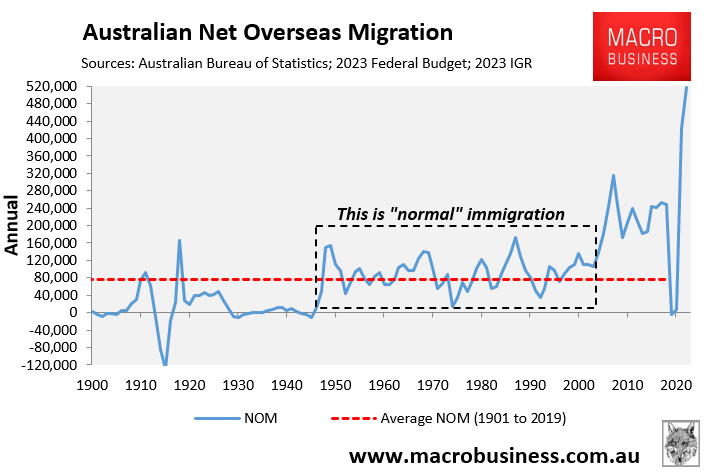In September 2023, NSW Premier Chris Minns backed the federal government’s extreme immigration program, claiming more migrants were needed to build homes for migrants:
“We’re supportive of the commonwealth government’s decision to lift immigration into New South Wales, notwithstanding the fact that we’ll take, not the majority but the greatest number of inbound immigrants”, Minns said.
However, after NSW lost $188 million in GST funding for 2024-25, Minns has finally concluded that immigration is destructive to the NSW budget.
“It’s not reasonable to take 37% of inbound immigrants every single year, but to do it with a decreasing share of the Commonwealth spending”, Minns said on Monday.
On Tuesday, Minns said that NSW is unable to put a “stop sign” to the Commonwealth’s plan to increase immigration despite ongoing pressures to NSW’s budget.
“It’s certainly not up to me to do that because the Commonwealth’s responsible for immigration policy”.
“Even if I didn’t agree to it, there’s no law or provision under the Constitution that would allow me to put up the stop sign. It’s just not possible”.
That’s quite the change in rhetoric, isn’t it? Minns was all for higher levels of immigration into NSW, now he is crying poor?
Why won’t Minns do the sensible thing and demand that net overseas migration be drastically cut to historical levels of less than 120,000 a year?

Minns and other premiers should also band together and demand at least $50,000 from the federal government for every extra resident that lands in their jurisdiction.
Under the current system, the federal government benefits most from net overseas migration through higher personal and corporate taxes, while state governments and local residents bear the costs.
The best way to achieve a sensible migration policy and to address the vertical fiscal imbalances inherent in Australia’s federal system is for the Commonwealth to make direct fiscal transfers to the states in proportion to their population growth.
Financial incentives must be aligned, or else policy will continue to fail.
The Commonwealth must be forced to factor in the costs of immigration when setting migration policy.

